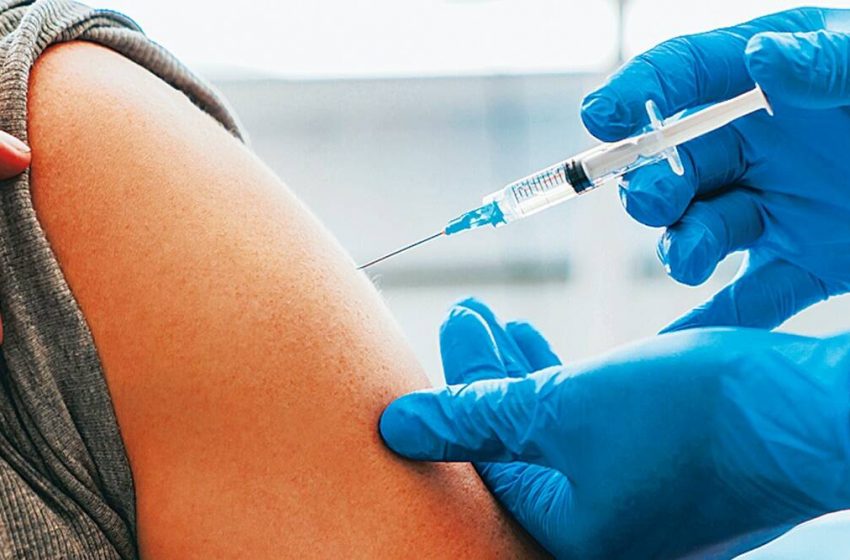
Early COVID-19 Vaccine Campaign in the United States Prevented Nearly 140,000 Deaths
We discuss the number of lives saved during the early U.S. vaccination effort; how to help the world’s refugees; what leaving Afghanistan says about U.S. commitments elsewhere; the pandemic’s effect on unemployment; insights into the new school year; and the global competition for virtual-reality dominance.
Here’s How Many Lives the Vaccines Have Saved
The daily COVID-19 vaccination rate in the United States has increased in recent weeks—likely due to concerns about the delta variant, which is ravaging unvaccinated populations and pushing hospital capacity to the brink. As Americans endure yet another wave of the pandemic, it’s worth reflecting on just how effective the nation’s early vaccination campaign was at slowing the spread of the virus and preventing death.
A new study by researchers at Indiana University and RAND estimates that vaccination in the United States prevented nearly 140,000 deaths and 3 million cases of COVID-19 by the second week of May 2021. This underscores the fact that further, coordinated efforts to vaccinate Americans—and people around the world—will be critical to controlling the pandemic.
The early COVID-19 vaccination campaign in the United States prevented nearly 140,000 deaths and 3 million cases of COVID-19 by the second week of May, according to a new study.
As a result of early vaccination efforts, the average state experienced five fewer deaths from COVID-19 per 10,000 adult residents. The study estimates the number of lives saved during the first five months of the vaccination campaign in each of the 50 states and Washington, D.C.
Adjusting for population size, New York saw the largest estimated reduction, with 11.7 fewer COVID-19 deaths per 10,000 adult residents. Hawaii observed the smallest reduction, with 1.1 fewer COVID-19 deaths per 10,000 adult residents.
The study, published online by the journal Health Affairs, is one of the first to provide an assessment of the impacts of state-level vaccination campaigns to address the COVID-19 pandemic.
“This study brings into focus the dramatic success of the early months of the nation’s coronavirus vaccine rollout,” said Christopher Whaley, senior author of the study and a policy researcher at RAND, a nonprofit research organization. “The findings provide support for policies that further expand vaccine administration to enable a larger proportion of the nation’s population to benefit.”
The coronavirus pandemic has caused enormous suffering, causing more than 4 million deaths worldwide and more than 600,000 in the United States. While access to and use of vaccines has varied substantially across states and sub-populations during early stages of the vaccine campaign in the United States, COVID-19 case numbers and deaths have fallen sharply since vaccination programs began.
Researchers from RAND and Indiana University created models to estimate the number of COVID-19 deaths that would have prevailed in the absence of vaccinations. The difference between the actual number of deaths and those estimates provides a measure of the number of COVID-19 deaths averted by the vaccination campaign.
Information about vaccine doses administered in each state came from the Bloomberg COVID-19 Vaccine Tracker, and data on COVID-19 deaths for each state came from The New York Times’ Coronavirus (COVID-19) Data in the United States database. The study spanned the period of December 21, 2020, to May 9, 2021.
State-level progress in vaccination varied over time. Alaska was the first to reach 20 doses per 100 adults on January 29, 2021, while Alabama was the last on February 21, 2021. On May 6, 2021, California was one of the first to reach 120 doses per 100 adults and many states have still not reached that milestone.
The study estimates the economic value of the lives saved during the study period to be between $625 billion and $1.4 trillion. Through the end of 2020, the U.S. federal government had allocated $13 billion dollars for vaccine development and manufacturing.
“Our results suggest that further efforts to vaccinate populations globally and in a coordinated fashion will be critical to achieving greater control of the COVID-19 pandemic,” said Sumedha Gupta, first author of the study and an economist at Indiana University-Purdue University Indianapolis.
Support for the study was provided by the National Institutes on Aging. Other authors of the study are Jonathan Cantor of RAND, and Kosali I. Simon, Ana I. Bento, and Coady Wing, all of Indiana University.
RAND Health Care promotes healthier societies by improving health care systems in the United States and other countries.
This blog post is part of a series by RAND















